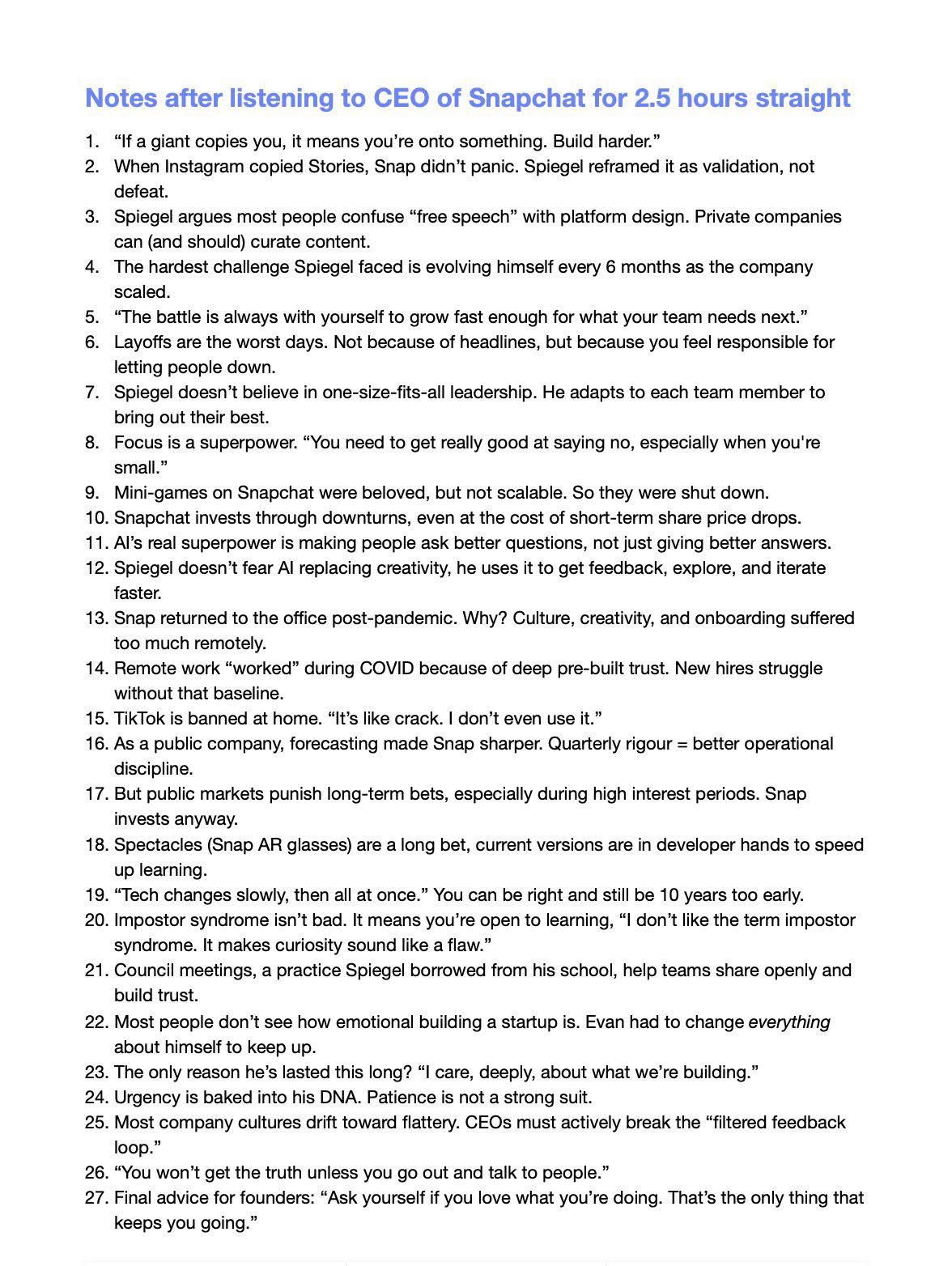Notes from SnapChat CEO on running a big company
Updated on

Imagine soaking up 2.5 hours of startup wisdom straight from Snapchat’s Evan Spiegel, then compressing it into one killer list. That’s what one listener did—and it’s full of sharp lessons for marketers and founders.
Marketing analysis
This image works because it’s raw and human. No polish, just insight. Spiegel’s advice feels like a coffee chat with someone who’s actually in the trenches, not an investor pitch. He admits failure, doubts, and constant personal evolution—all things marketers and entrepreneurs face daily.
Why it works
- Validation over panic when copied—it reframes competition into proof of value.
- Focus as a superpower—marketing thrives on ruthless prioritization.
- Curated communication—what you say (and what you don’t) defines your brand.
- Authentic leadership—adapting your message to people builds trust.
Real-world parallels
- Instagram stole Stories, yet Snapchat survived by doubling down on AR.
- Apple invests through downturns to stay ahead long-term.
- Netflix kills shows and features fast when they don’t scale.
- Tesla releases beta products publicly to speed up learning cycles.
- Airbnb rebuilt culture around feedback once post-COVID remote work faltered.
Analyzed by Swipebot
Loading analysis...